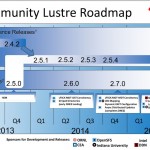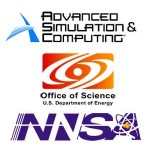“Compared to frequent developments in CPUs and accelerators, disk and storage communication technologies as well as parallel file systems are not realizing the same rate of innovation (Moore’s Law). However, this is changing as a number of new new and interesting technologies and developments such as HAMR drives, hybrid disks, intelligent flash, and new communication protocols including 12 Gb/s SAS and PCI-E direct attach are becoming available in the industry. This presentation intends to explain these technological directions and explore what these techniques mean for HPC storage over the coming years.”
Archives for April 2014
Seeking Nominations for the HPC Innovation Excellence Awards
“While there are multiple benchmarks to measure the performance of technical computers, there currently isn’t an adequate methodology to evaluate the economic and scientific value HPC systems contribute. The HPC Innovation Excellence Award Program is designed to help close that gap.”
Georgia Tech Becomes Latest Intel Parallel Computing Center
Intel has selected Georgia Tech as the site of one of its newest Parallel Computing Centers. “The IPCC at Georgia Tech will develop new parallel algorithms and software for quantum chemistry and biomolecular simulation. Research will target large-scale computer systems using Intel Xeon Processors and Intel Xeon Phi coprocessors. The center will also develop new curricular materials to equip future computer scientists with the skills to fully realize the capabilities of parallel computing resources for scientific applications.”
Video: CUDA 6 and Beyond
In this video, Nvidia’s Mark Harris, provides a detailed look at the top new features of CUDA 6, including a deep-dive review of Unified Memory, which makes GPU programming easier by automatically migrating data between the CPU and GPU.
HPC Life Sciences Report
For decades, HPC systems have accelerated life sciences research, often by helping to identify and eliminate in feasible targets sooner. That is, it’s easier to find needles in haystacks if you can eliminate the hay. A new white paper from Intersect360 Research focuses on speeding up HPC life sciences research.
Supercomputing the Mechanism of Short-term Memory
In his recent paper, Lester Ingber explores the relationship between large-scale, or “top-down” activities in the brain and short-term memory and consciousness.
Altair Wins Boeing Performance Excellence Award
“We have worked with Boeing since 2005 and are honored to receive this award in acknowledgement of our efforts over the last twelve months,” said Mak Gilbert, engineering manager at Altair ProductDesign. “Our specialist teams work alongside Boeing’s engineers to optimise the performance and minimise the weight of their aircraft on a daily basis. We are grateful to receive this award as a sign of the successful and close working relationship between our two companies.”
Video: Lustre Releases Presentation from LUG 2014
“The Lustre community has banded together to work on the development of the Lustre source code. As part of that effort, we regularly discuss the roadmap for major Lustre releases. We have developed a schedule of major releases that occur every six months.”
Podcast: Lustre with Multilevel Security – the New ClusterStor Secure Data Appliance
“The ClusterStor SDA represents an industry first, combining low level data access enforcement and logging mechanisms, purpose-built within a proven HPC and Big Data single-system solution. Since our customers need to know exactly who is doing what on their systems, as well as access to complete and explicit audit trails, the ClusterStor SDA delivers all the necessary tools and support to collaboratively share information, while strictly complying with security data protection standards.”
The RFP is out for FastForward 2 Extreme Scale Technologies
The DOE Office of Science and the National Nuclear Security Administration has issued a Request for Proposals to further develop “extreme scale” supercomputer technology.











